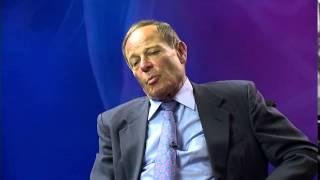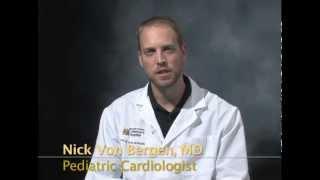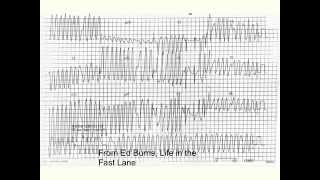Tuesday, 13 January, 2026г.
















Где искать: по сайтам Запорожской области, статьи, видео ролики
пример: покупка автомобиля в Запорожье
Wolff-Parkinson-White Syndrome: Symptom-Free Is Not Risk-Free
Mayo Clinic pediatric cardiologist and electrophysiology specialist Bryan Cannon, M.D., along with cardiologist Bernard Gersh, M.B., Ch.B., D.Phil., discuss Wolff-Parkinson-White (WPW) Syndrome in asymptomatic patients. To learn more about Wolff-Parkinson-White Syndrome or to request an appointment, please visit http://www.mayoclinic.org/diseases-conditions/wolff-parkinson-white-syndrome/home/ovc-20265961?mc_id=global&utm_source=youtube&utm_medium=sm&utm_content=dysrhythmiaheart&utm_campaign=mayoclinic&geo=global&placementsite=enterprise&cauid=103944. Wolff-Parkinson-White is a syndrome in which an extra electrical pathway between the upper and lower chambers of the heart causes a rapid heartbeat. WPW is relatively common and with increased screening for athletics and attention-deficit/hyperactivity-disorder, more patients are being diagnosed and treated.
It is important for patients, even those with no symptoms, to be treated as there have been a small percentage of asymptomatic patients where sudden cardiac death has occurred. Treatment can include a transesophageal study or an electrophysiology study and cardiac ablation. Advances in technology, high success rates, and very low complication rates make treating asymptomatic WPW patients desirable.
Video Content Outline:
• Introduction
• What is Wolf-Parkinson-White Syndrome(0:45)
• Asymptomatic Patients (1:10)
• Step-by-step diagnosis for WPW (2:20)
• Treatment for WPW (3:45)
• Role of isoproterenol (5:15)
• Do you ablate? (5:36)
• Conclusion (6:45)
Теги:
Mayo Clinic (Organization) Health Care (Issue) Healthcare Science (Field Of Study) cardiology Bernard Gersh Bryan Cannon WPW Wolff-Parkinson-White Syndrome congenital heart electrophysiology ECG pediatrics asymptomatic pre-excitation Holter monitor electrophysiology refractory period conduction atrial fibrillation isoproterenol diagnosing WPW treatment for WPW heart cardiac ablation electrophysiology study transesophageal study dysrhythmia sudden cardiac death
Похожие видео
Мой аккаунт


 У вашего броузера проблема в совместимости с HTML5
У вашего броузера проблема в совместимости с HTML5


